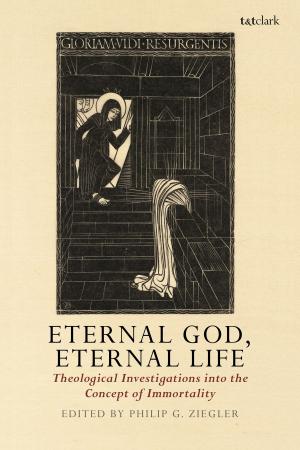Unnatural Theology
Religion, Art and Media after the Death of God
Nonfiction, Religion & Spirituality, Philosophy, Religious, Social & Cultural Studies, Social Science| Author: | Charlie Gere | ISBN: | 9781350064713 |
| Publisher: | Bloomsbury Publishing | Publication: | February 21, 2019 |
| Imprint: | Bloomsbury Academic | Language: | English |
| Author: | Charlie Gere |
| ISBN: | 9781350064713 |
| Publisher: | Bloomsbury Publishing |
| Publication: | February 21, 2019 |
| Imprint: | Bloomsbury Academic |
| Language: | English |
The failure of secular modernity to deliver on its promise of progress and enlightenment leaves a void that religion is rushing to fill. Yet what kind of religious thinking and doing can be adequate to our posthuman condition? And how can we avoid either embracing religious fundamentalism and fantasy or remaining mired in hopeless atheistic nihilism?
In Unnatural Theology Charlie Gere provides ways of thinking about the possibilities of religion and theology in the context of our highly technologized postmodernity. Taking its cue from a wide range of thinkers, from John Ruskin and Alfred North Whitehead, to Jacques Derrida, Judith Butler, Giorgio Agamben, Simon Critchley, Catherine Keller, Bruno Latour, and Timothy Morton, and artists such as Marcel Duchamp and Richard Hamilton, and films including The Incredible Shrinking Man, the book seeks the remnants of theology and religion in the realms of technology and media, and also art, as the basis of potential new religious thinking.
Through an interdisciplinary engagement with these thinkers and artists it develops the notion of an unnatural theology as the basis of a new kind of religious thought that does not insult our intelligence.
The failure of secular modernity to deliver on its promise of progress and enlightenment leaves a void that religion is rushing to fill. Yet what kind of religious thinking and doing can be adequate to our posthuman condition? And how can we avoid either embracing religious fundamentalism and fantasy or remaining mired in hopeless atheistic nihilism?
In Unnatural Theology Charlie Gere provides ways of thinking about the possibilities of religion and theology in the context of our highly technologized postmodernity. Taking its cue from a wide range of thinkers, from John Ruskin and Alfred North Whitehead, to Jacques Derrida, Judith Butler, Giorgio Agamben, Simon Critchley, Catherine Keller, Bruno Latour, and Timothy Morton, and artists such as Marcel Duchamp and Richard Hamilton, and films including The Incredible Shrinking Man, the book seeks the remnants of theology and religion in the realms of technology and media, and also art, as the basis of potential new religious thinking.
Through an interdisciplinary engagement with these thinkers and artists it develops the notion of an unnatural theology as the basis of a new kind of religious thought that does not insult our intelligence.















